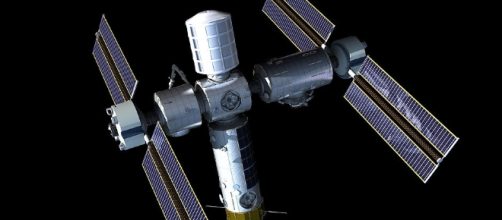Axiom Space, a new commercial space startup, has revealed its plan to ultimately build a commercial space station that it hopes to be a successor to the International Space Station when that facility is retired in 2024, according to Space.com. The management team of Axiom is very experienced at space station operations, having worked for NASA and NASA contractors on the ISS and astronaut training. The plan is a step by step path that starts with managing a Space Tourism business at the ISS.
Space tourism by 2019
Space tourism has been a business that had benefited from the ISS since the dawn of the century.
Space Adventures, in cooperation with the Russians, has flown the well-heeled and adventurous to the ISS for tens of millions of dollars. Axiom’s plan seems to be a similar operation, with training for private astronauts to start during the current year. The space tourism trips would last for ten days.
Private modules on the ISS starting in 2020
The next step for Axiom will be to add privately build modules to the ISS starting in 2020. The first two modules will be capable of sustaining seven crew members. Additional modules, including propulsion and power, would be added through 2024. During this phase, Axiom will be able to host astronauts for as long as 60 days at a time, creating revenue from fees paid by national aerospace agencies and private companies and individuals as well as advertising and sponsorships.
The cost of this phase of Axiom’s operation would be somewhere between $1.5 billion and $1.8 billion.
In 2024 the first commercial space station
When the ISS is decommissioned in 2024, the Axiom modules will detach and become the basis of the first commercial orbiting station. By 2027, the company intends to operate the first space-based manufacturing facility in history. A company like Made in Space would run 3D printers to make high-quality optical fiber and other products that can be manufactured in microgravity.
A convergence of commercial space starting an orbital economy
Axiom’s scheme will no doubt benefit from the development of other space businesses. Companies like SpaceX and Boeing can transport people to and from its orbiting station with their commercially developed spacecraft.
Later, mining companies like Planetary Resources and Moon Express could provide the raw material for the manufacturing operation. Axiom will also likely have a competitor in the form of Bigelow Aerospace which plans its own commercial space stations using inflatable modules. These and no doubt other commercial space companies are developing together in the second decade of the 21st Century that may, at last, create a low Earth orbit economy.


